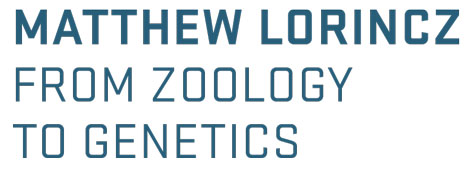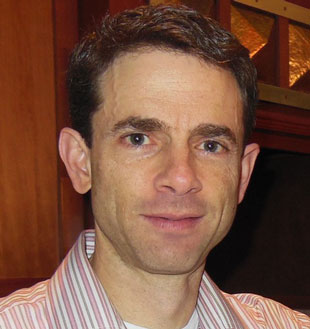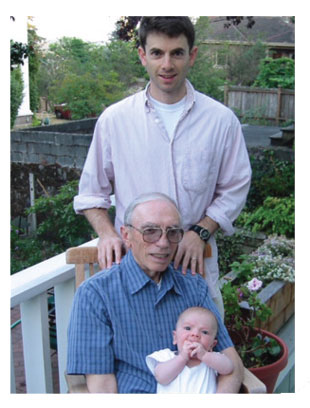

In 1990, Matthew Lorincz received his master’s degree from Berkeley in zoology — a year after that department ceased to exist, having been incorporated into the new Department of Integrative Biology in 1989. He remembers being influenced by such faculty as herpetologist David Wake and food-web ecologist Mary Power. But perhaps the greatest moment of inspiration came from the late animal behaviorist and evolutionary biologist George W. Barlow, a renowned expert on cichlid fishes. “He asked me, ‘What fish species are you interested in? Become the world’s expert in that,’” Lorincz remembers. He took that advice to heart when he decided to change course and focus on a career in genetics.
After graduation, Lorincz spent a summer working at Berkeley’s Richard B. Gump South Pacific Research Station in Moorea, French Polynesia, before pursuing his PhD in genetics at Stanford and becoming a postdoctoral fellow at the Fred Hutchinson Research Center in Seattle. Today he’s a professor in the Department of Medical Genetics at the University of British Columbia. His lab studies how endogenous retroelements — which make up about 10 percent of the human genome — are suppressed and how such parasitic elements have been co-opted or exapted by their mammalian hosts for gene regulation.
A basic research study — “Vitamin C Induces Tet-Dependent DNA Demethylation and a Blastocyst-like State in ES cells” — conducted with colleagues at UCSD and UCSF and published in 2013 in Nature, instigated a new area of research in the role of this essential vitamin, with clear implications for treatment of specific cancers.
 Lorincz’s connection to Cal precedes his undergraduate experience. His father, a Holocaust survivor from Budapest, Hungary, came to the U.S. in 1947 on Thanksgiving Day with nothing but a jar of goose liver in his pocket. He learned English, took some math courses, and attended UC Berkeley on a scholarship, working at a student co-op. From there, he went to graduate school at Yale and realized his lifelong dream of becoming an architect. Among the many structures he designed is a home in Kensington that Lorincz still owns and rents out to Cal students.
Lorincz’s connection to Cal precedes his undergraduate experience. His father, a Holocaust survivor from Budapest, Hungary, came to the U.S. in 1947 on Thanksgiving Day with nothing but a jar of goose liver in his pocket. He learned English, took some math courses, and attended UC Berkeley on a scholarship, working at a student co-op. From there, he went to graduate school at Yale and realized his lifelong dream of becoming an architect. Among the many structures he designed is a home in Kensington that Lorincz still owns and rents out to Cal students.
That family legacy, and the excellent education he himself received at Berkeley, is the reason Lorincz still supports the University as an alumnus. “It’s so important to support integrative and organismal biology,” he says. “We live in a world where molecular biology gets most of the headlines, but we need to support the ecologists and botanists, too. When George Barlow passed away, he took with him a unique breadth of knowledge in the field of ethology — what we now call sociobiology.”
Lorincz’s advice to current students? “Pursue your dreams and interests, and try to ignore all the noise. Just concentrate on doing good science. It’ll maximize your chances of staying in your chosen field.”
Back to Main Spring 2018 Newsletter Page





